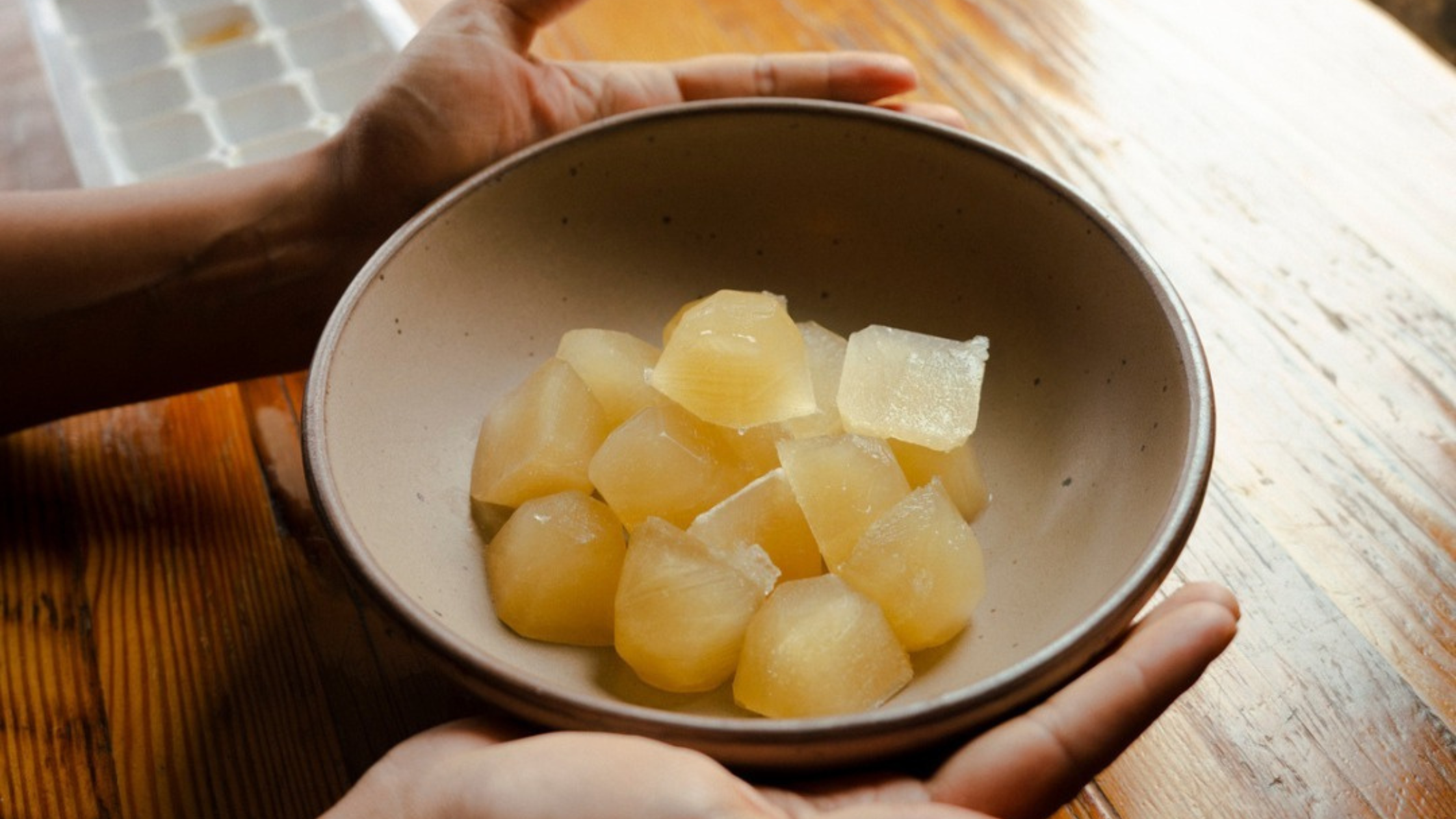Complete FAQ to bone broth during pregnancy and postpartum
Complete FAQ to bone broth during pregnancy and postpartum
Blog Article
The aSignificance of Healthy And Balanced Food: Why Bone Broth Is a Great Selection for Babies
Bone broth stands out as a nutrient-dense alternative, supplying essential vitamins and minerals that sustain growth and development. What are the ideal means to present bone broth to your little one?
Nutritional Benefits of Bone Broth for Newborns
When you introduce bone broth to your infant's diet regimen, you're providing a nutrient-dense food that provides various health and wellness advantages. Loaded with necessary nutrients, bone broth consists of calcium, magnesium, and phosphorus, which support your infant's growing bones. It's likewise rich in collagen, aiding in the advancement of healthy and balanced skin, joints, and connective cells.
In addition, bone broth is an excellent source of amino acids like glycine and proline, which play a significant duty in total development and muscular tissue advancement. These nutrients aid promote a solid immune system, setting a strong foundation for your baby's health.
Additionally, bone broth is very easy to digest, making it a mild option for your kid. By incorporating this wholesome food right into their meals, you're guaranteeing they obtain necessary nutrients required for their total health. So, go on and make bone broth a staple in your infant's diet plan!
Exactly How Bone Broth Sustains Food Digestion
Bone broth is packed with important nutrients that can really profit your baby's digestion. It promotes gut health and helps with nutrient absorption, making it a great enhancement to their diet. By integrating bone broth, you're establishing the stage for a healthier gastrointestinal system.
Nutrient-Rich Structure
One of one of the most nutrient-rich foods you can present to your baby's diet plan is bone broth, which is loaded with essential minerals and amino acids that sustain healthy food digestion. Rich in collagen, bone broth helps enhance your infant's digestive tract lining, making it less complicated for their body to soak up nutrients. It offers gelatin, which helps in damaging down proteins, promoting smoother food digestion. In addition, the broth has vital electrolytes like potassium and magnesium, ensuring your baby remains hydrated and stabilized. The amino acids, such as glycine and proline, play a vital role in repairing cells and sustaining overall wellness (chicken bone broth). By including bone broth right into your infant's dishes, you're providing them a wholesome food that nurtures their gastrointestinal system efficiently.
Promotes Digestive Tract Health
As you introduce bone broth into your baby's diet plan, you'll find it not just nourishes however additionally promotes digestive tract wellness properly. Rich in jelly, bone broth helps soothe the gastrointestinal tract, minimizing inflammation and sustaining a healthy and balanced gut cellular lining. This is vital for babies, as a well balanced digestive tract setting lays the foundation for general health and wellness. Additionally, the amino acids located in bone broth, such as glycine, aid in food digestion and can assist avoid usual stomach problems. By including this beneficial liquid, you're providing your infant with necessary nutrients that add to a flourishing digestive system. Inevitably, a healthy gut can affect everything from immunity to state of mind, making bone broth a superb choice for your kid.
Aids Nutrient Absorption
Introducing bone broth not only supports digestive tract wellness but additionally plays a significant duty in aiding nutrient absorption. When you give your infant bone broth, you're providing an abundant resource of minerals and amino acids that improve their digestive system processes. The gelatin in bone broth assists to calm the digestive tract lining, improving its capability to absorb necessary nutrients. This indicates that crucial vitamins and minerals from various other foods are much more efficiently utilized by your infant's expanding body. Additionally, bone broth contains collagen, which supports the development of healthy tissues and body organs. By incorporating this nutrient-dense liquid right into your infant's diet plan, you're guaranteeing they obtain the maximum benefit from their dishes, advertising overall health and wellness and wellness.
Enhancing the Body Immune System With Bone Broth

By incorporating bone broth right into your child's diet plan, you're offering an all-natural resource of nourishment that advertises wellness. Consider making bone broth a staple in your infant's meals, as it can play a crucial function in their immune health and wellness and advancement.
Easy Ways to Incorporate Bone Broth Into Infant's Diet plan
Incorporating bone broth into your child's diet can be simple and satisfying. You can likewise utilize bone broth as a base for soups or stews that you prepare for the family members, ensuring your infant obtains a taste of scrumptious, healthy dishes.
An additional alternative is to serve bone broth by itself. Cozy it up and supply it in a sippy mug or small dish-- it's a terrific method to introduce brand-new tastes. If your child takes pleasure in grains, consider cooking rice or quinoa in bone broth rather than water for added nutrition. Ultimately, you can freeze bone broth in ice trays, making it very easy to include a dice to different dishes whenever you want. These techniques will certainly assist your child profit of bone broth effortlessly!
Homemade vs. Store-Bought Bone Broth: What to Pick
Which is far better for your child: homemade or store-bought bone broth? Homemade bone broth provides you complete control over the components.
On the other hand, store-bought options are convenient and conserve you time. Nevertheless, they commonly consist of preservatives and may not match the deepness of taste and nutrition you receive from homemade broth. If you opt for store-bought, look for brand names that are organic and without additives.
Eventually, if you have the time and sources, homemade bone broth is the remarkable selection for your child's health and wellness. If you're short on time, pick a quality store-bought option as a back-up.
Age-Appropriate Bone Broth Serving Recommendations
As your baby grows, it's vital to customize bone broth serving ideas to their developing stage. For babies around 6 months, start with a couple of spoonfuls of diluted bone broth (where to get bone broth).
Once your infant reaches around 8 months, you can serve it cozy in a sippy mug or include it to soft foods like purees. By the time your youngster is around a years of age, take into consideration using bone broth as a standalone beverage or blending it into my link soups and stews. Just ensure to maintain the broth low in salt. Constantly keep track of for any kind of reactions, and consult your pediatrician if you have worries concerning introducing new foods. Enjoy this nourishing addition to your baby's diet plan!
Other Healthy Foods to Couple With Bone Broth for Babies
When you're wanting to improve the dietary worth of bone broth for your infant, think about combining it with nutrient-dense veggies like carrots and see this website spinach. Entire grain choices, such as quinoa or wild rice, can also include texture and fiber. Furthermore, including healthy and balanced protein resources like shredded chicken or lentils will complete the dish well.

Nutrient-Dense Veggies
Nutrient-dense veggies are a fantastic enhancement to bone broth for infants, enhancing both flavor and nutrition. Including veggies like carrots, spinach, and wonderful potatoes can improve the vitamin and mineral web content of your broth. Carrots offer beta-carotene for healthy vision, while spinach is loaded with iron and calcium, crucial for development. Wonderful potatoes include natural sweetness and are rich in fiber, aiding food digestion.
You can quickly blend these vegetables right into the broth or offer them as soft, prepared pieces together with it. This not only presents brand-new tastes but also encourages your little one to appreciate a selection of nutrients. By combining nutrient-dense vegetables with bone broth, you're laying the structure for a healthy and balanced diet regimen right from the begin.
Whole Grain Options

Healthy And Balanced Healthy Protein Sources
Bone broth pairs incredibly with different healthy and balanced protein resources, further boosting your infant's diet. Eggs, when introduced securely, are one more excellent selection; they're versatile and filled with nutrients. By incorporating these healthy and balanced protein resources with bone broth, you're providing your infant a well balanced, beneficial meal that supports their growth and growth.
Often Asked Inquiries
Can Bone Broth Cause Allergies in Newborns?
Yes, bone broth can cause allergies in infants, specifically if they're sensitive to specific components. Constantly consult your pediatrician before presenting new foods and display for any type of indications of allergic reactions after feeding.
Exactly How Should Bone Broth Be Kept for Babies?
You ought to store bone broth in impermeable containers, either in the refrigerator for up to a week or in the fridge freezer for approximately three months. chicken bone broth. Always thaw it correctly before serving to your baby
Is It Safe to Provide Bone Broth to Premature Babies?
It's vital to consult your pediatrician prior to presenting bone broth to premature infants. They'll analyze your baby's particular health needs and assure it's safe, considering their distinct nutritional requirements and developmental phase. Constantly prioritize experienced guidance.
What Are the Indicators of Intolerance to Bone Broth in Infants?
When presenting bone broth, expect indicators like fussiness, breakout, looseness of the bowels, or vomiting. If your child reveals any one of these responses, it's ideal to seek advice from a doctor prior to remaining to supply it.
Can Bone Broth Be Made Use Of as a Dish Replacement for Newborns?
No, you should not utilize bone broth as a meal replacement for babies. It does not have vital nutrients required for their development. Rather, integrate it right into their diet plan along with balanced dishes for included sustenance and taste.
Report this page